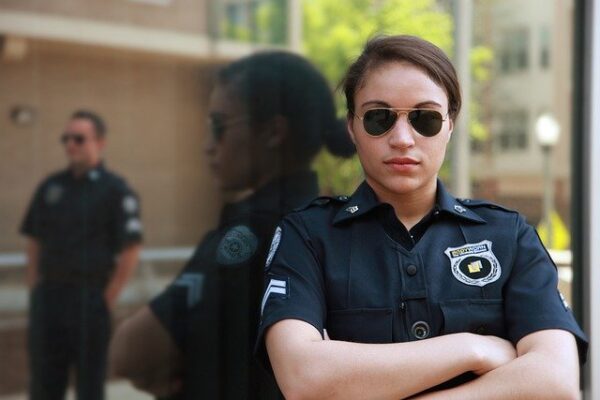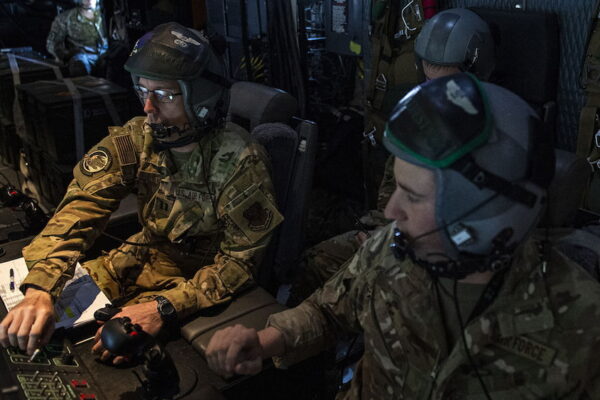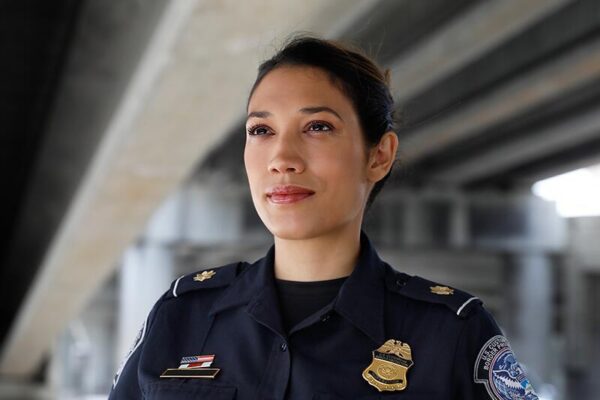Correctional officers are responsible for enforcing rules and regulations in a prison or jail. They are responsible for those who have been detained while they wait for a court date or who have been ordered to spend time in a jail, prison, or reformatory.
To ensure their safety as they travel to and from cells and other locations, correctional officers frequently restrain inmates with handcuffs and leg irons. Additionally, they accompany inmates to and from the prison, as well as other locations like courts, hospitals, and other facilities.
what does a correctional officer do
Keep reading.
- What Does A Correctional Officer Do?
- What Is The Workplace Of A Correctional Officer Like?
- Correctional Officers Work Places And Hours
- Correctional Officer Career Video Transcript
- How Long Does It Take To Become A Correctional Officer?
- What Are Correctional Officers Like?
- Are Correctional Officers Happy?
- Is It Wise For Me To Work As A Correctional Officer?
- Start Your Correctional Officer Career Journey Today
What Does A Correctional Officer Do?
Daily duties for correctional officers include enforcing regulations, monitoring prisoners as they go about their daily business, searching the facility for prohibited items, and enforcing discipline. The primary duties of correctional officers will be outlined and explained below.
Enforce Rules
One of the principal responsibilities of a correctional officer is rule enforcement. Clear communication, ensuring that the rules are understood, maintaining surveillance, and administering punishments when necessary are all ways that correctional officers uphold the law. Correctional officers typically revoke privileges for rule violations, and their sentences are proportionate to the crime—that is, they don’t impose severe penalties for minor offenses.
Keep The Peace
A correctional officer’s job is to diffuse tension when conflict arises, even though prisons may not always be rife with all-out fights like you might see in the movies. When a fight does start, they work to break it up and make sure everyone involved is safe. They also work to prevent fights from starting in the first place. Preventing disturbances and evasion attempts are also part of maintaining the peace.
Supervise Inmate Activities
Correctional officers’ duties include monitoring inmate activities in large part because inmates need to be constantly watched over, especially when they are participating in daily activities outside of their cells. This entails making sure that everyone is abiding by the rules and that they are always aware of everyone’s whereabouts. Correctional officers also accompany inmates to and from courtrooms, medical facilities, and other locations outside of the detention center.
Conduct Inspections
Another crucial responsibility is to inspect facilities to make sure they adhere to the standards of the detention facility. As part of their inspections, they check to see if the prison cells and other spaces are clean. Additionally, they search for any evidence of illegal activity, clues to a possible security breach, and any contraband.
Perform Searches
To make sure the inmates are not in possession of illegal items like drugs or weapons, searches are done on their person and in their living space. Correctional officers check visitors and any incoming mail to make sure no contraband enters the prison at all.
Rehabilitate And Counsel
Rehabilitation and counseling are another crucial aspect of a correctional officer’s job that is under-covered by the media. Correctional officers with extensive training or a college degree are frequently employed to help with the counseling and rehabilitation of offenders. This is a crucial task because it helps to avoid any repeat visits to the prison after the offenders are released. Correctional officers may also plan work assignments, counseling sessions, and educational opportunities for those undergoing rehabilitation.
Report On Inmate Conduct
Correctional staff must notify management when an inmate disobeys a rule. In addition to recording the behavior of the inmates and any other pertinent events, correctional officers are required to write reports and complete daily logs. Correctional officers support law enforcement officials in their investigation and hunt for escapees in the event that a crime is committed or an inmate escapes.
Facilitate Safety
For correctional officers, ensuring and promoting safety is one of their most significant duties. Therefore, it is the duty of correctional officers to promote inmate, team, and personal safety. Taking care of oneself is ensuring personal safety. The use of weapons, batons, pepper spray, and hand-to-hand combat are all covered in the extensive training that all correctional officers must undergo. Other correctional officers and prison staff are always safe when there is team safety in place. They do this by making sure that all other officers and staff adhere to prison protocol. Last but not least, inmate safety makes sure that everyone inside is safe by making sure they abide by the rules, don’t carry any illegal items, and don’t hurt other prisoners or themselves.
What Is The Workplace Of A Correctional Officer Like?
Correctional officers are employed by the government in the vast majority of cases. Some work for private companies that offer prisons and jails correctional services.
It can be dangerous and stressful to work in a correctional facility. Correctional officers have one of the highest rates of nonfatal on-the-job injuries, often resulting from physical altercations with prisoners.
A correctional officer may work inside or outside. The majority of facilities have good lighting, temperature control, and ventilation, but some are outdated, crammed with people, hot, and noisy.
Correctional Officers Work Places And Hours
In institutions run by the federal, state, and local governments, correctional officers primarily work. The security risk posed by the inmates and the crimes they have committed are related to the level of government that operates the facility.
Additionally, officers are employed by private prisons.
Most officers are employed full-time. Given that prisoners must be monitored round-the-clock, their working hours may seem odd. Therefore, it is likely that new officers will work nights, weekends, and holidays.
Correctional Officer Career Video Transcript
Maintaining a balance of the 3 “Cs” – care, custody, and control with the incarcerated is up to correctional officers and bailiffs. They safeguard and contain prisoners. Correctional officers keep an eye on those who have been locked up, enforce the rules and regulations of the institution, and keep track of the inmates’ whereabouts at all times. They look for weapons and drugs while searching prisoners and cells, and they might need to escort or restrain prisoners for their own safety.
Correctional officers can assign tasks and plan other activities in addition to resolving conflicts and enforcing discipline. Reports and daily logs outlining each shift are necessary. Bailiffs are members of the police who keep the peace and order in courtrooms. In addition to enforcing courtroom regulations, they guard juries and deliver court documents. The majority of correctional officers work for government correctional facilities, some of which are new and well-maintained and others which are outdated, hot, and crowded. In courts, bailiffs perform their duties.
It can be dangerous and stressful to work in a correctional facility. Some of the highest rates of illness and injury exist across all professions. Even on weekends and holidays, officers are on duty in shifts. Officers receive training in a special academy in addition to a high school diploma, and they might also participate in on-the-job training at a facility. A bachelor’s degree or relevant work experience is required for federal prisons. Candidates cannot have ever been convicted of a felony.
![What Does A Correctional Officer Do Job Description [The Ultimate Guide]](https://www.techofficesupplies.com/wp-content/uploads/2022/11/What-Does-A-Correctional-Officer-Do-Job-Description-The-Ultimate-Guide-2.jpg)
How Long Does It Take To Become A Correctional Officer?
The length of time required to become a correctional officer varies depending on the chosen educational track, the intended career trajectory, and jurisdictional requirements:
- Correctional Officer Certificate Program – three to twelve months
- Associate Degree in Applied Science in Corrections – two years
- Bachelor’s Degree Program in Corrections, Criminology, Criminal Justice, or a related field – four years
What Are Correctional Officers Like?
According to our user base, investigators tend to make up the majority of correctional officers. To find out which career interest category most closely matches you, take our career test.
The two strongest interest archetypes for correctional officers are investigative and social. Given the role’s emphasis on constant, intense observation of and interaction with inmates, this result is both expected and encouraging.
Are Correctional Officers Happy?
One of the least fulfilling occupations is correctional officer. According to satisfaction scores across all professions, they fall into the second percentile. Please be aware that only the information we have gathered from our Sokanu members was used to calculate this number.
This startlingly low career satisfaction index, which is particularly evident in the work environment dimension, may have its roots in the inherently dangerous and stressful work that correctional officers perform on a daily basis.
Is It Wise For Me To Work As A Correctional Officer?
Correctional officers frequently encounter challenging and dangerous situations. Simply because of this, they are required to come to work every day with a unique set of skills.
Observation Skills
Correctional officers frequently experience dangerous encounters or serious incidents that come without obvious warning. A police officer may be able to predict these events with the aid of keen observational skills.
Perceptiveness & Sound Judgement
Every day, prison guards are in close proximity to prisoners. If a police officer is unable to distinguish between a potential threat and innocent behavior and take the appropriate action, a seemingly routine event may develop into an emergency situation.
Interpersonal & Negotiating Skills
Correctional officers communicate frequently with their coworkers and prisoners. They must have the interpersonal skills necessary to establish rapport, command respect, and deliver instructions clearly. They must be able to settle disagreements amicably in order to prevent conflict, especially under pressure.
Ethical Decision-making Skills
In order to get the results you want, you must be able to make decisions quickly about what to do.
Attention To Detail
To ensure that everyone present in courts and correctional facilities is safe, correctional officers are called upon to strictly enforce the rules.
Mental Health / Emotional Strength / Self-discipline
When faced with challenging, hostile circumstances and hostile inmates, control and discipline are essential.
Physical Fitness & Strength
Excellent hearing and vision are requirements for the position. There will also be instances in which a correctional officer’s physical dominance is the only thing keeping an inmate under control and secure.
Start Your Correctional Officer Career Journey Today
You ought to think about pursuing a degree in criminal justice if beginning a career as a correctional officer interests you. Typically, a college degree is required for correctional officers, as well as relevant work experience in the military, police, or other governmental agencies. A background check is an additional requirement.
Read about

![What Does A Correctional Officer Do Job Description [The Ultimate Guide]](https://www.techofficesupplies.com/wp-content/uploads/2022/11/What-Does-A-Correctional-Officer-Do-Job-Description-The-Ultimate-Guide-768x432.jpg)



